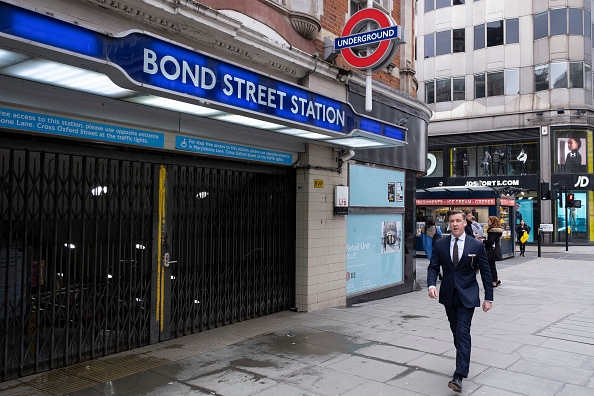Londoners face more disruption as new tube strike is confirmed for 21 June

Londoners will need to brace themselves for more disruption as the RMT union has announced that 10,000 of its tube workers will walk out on 21 June.
RMT members working for London Underground cited a dispute over pensions and job losses as the main reason behind the walkout.
The strike is the latest disruption to affect the Transport for London (TfL) network after 4,000 tube workers walked out on Monday.
“TfL, London Underground Limited (LUL) and the Mayor of London have had ample opportunity to negotiate with the union properly to avert this strike action today,” said RMT’s general secretary Mick Lynch on Monday.
“We will not rest until we have a just settlement to this dispute and we urge the Mayor to stand up to the Tory government who are cutting funding to TfL rather than try to pick a fight with tube workers.”
The industrial action will take place on the same day union members working in the railway network are expected to strike over job cuts and pay freezes after Network Rail decided to axe 2,500 maintenance jobs.
Balloted by 40,000 workers, the RMT rail strike is set to be the biggest one since 1989, costing taxpayers £30m per day.
We have a cost-of-living crisis, and it is unacceptable for railway workers to either lose their jobs or face another year of a pay freeze when inflation is at 11.1 per cent and rising,” said RMT’s general secretary Mick Lynch.
“Rail companies are making at least £500m a year in profits, whilst fat cat rail bosses have been paid millions during the Covid-19 pandemic.”
The RMT’s decision was lambasted by the industry, who begged the union to get back to the negotiating table.
Transport secretary Grant Shapps accused the union of jumping the gun and invited both parties to go back to the negotiating table, as the move could drive people even further away, pulling the plug on an industry already “on life support.”
“We once again want to urge the unions to come to talks with the rail industry so we can work together to build a better, more modern, passenger-focussed, railway,” the secretary said.